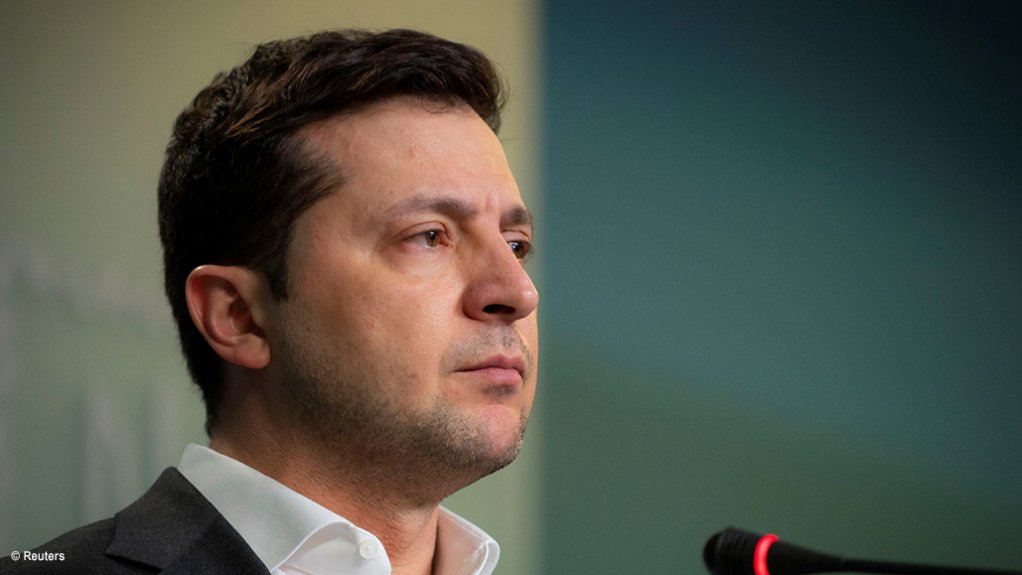After official meetings in Kyiv this June, President Cyril Ramaphosa and Ukrainian President Volodymyr Zelensky spoke informally over a lengthy dinner and two key areas were agreed on that Ramaphosa and a delegation of African leaders could take to Moscow, Russia.
On Wednesday, Ukrainian Foreign Affairs Minister Dmytro Kuleba revealed new details of the engagement between Ramaphosa and Zelenksy during a briefing with a group of African journalists invited to Ukraine by his ministry.
The delegation, including News24, has spent time in Kyiv and Odessa, and met with a series of top Ukrainian officials including Zelensky, Prime Minister Denys Shmyhal and Speaker of the Ukrainian Parliament Ruslan Stefanchuk.
The two points – prisoner exchanges and the return of more than 20 000 Ukrainian children deported to Russia from occupied territories – originally formed part of a 10-point peace formula that Zelensky introduced to international countries.
Ramaphosa visited Kyiv five months ago with six other leaders from African countries as part of the African Peace Initiative that sought to establish dialogue between Ukraine and Russia. After Kyiv, the delegation visited Russia.
Ramaphosa was joined by Comoros President Azali Assoumani, who also serves as president of the African Union; Republic of Congo President Denis Sassou Nguesso; Ugandan President Yoweri Museveni; Senegal's Macky Sall; and Hakainde Hichilema of Zambia.
Zelensky said discussions in Ukraine allowed the African leaders to arrive in Moscow with a "better understanding of this shameful war" and meant they could not easily be persuaded with disinformation.
Some had arrived with "mixed emotions and mixed information" about the war, Zelensky told the same delegation of journalists in an interview on Tuesday.
News24 reported that Ramaphosa had come away from the meeting with a new understanding of Russian aggression in Ukraine.
Since then, some children have been returned. In October, four children were brought back through a deal mediated by Qatar, after being taken to Russia in May 2022.
Forbes reported in October that prisoner swaps remain rare, with at least 10 000 Ukrainian soldiers believed to be in Russian custody while more than 2 500 have been returned.
"President Ramaphosa and President Zelensky sat next to each other and talked a lot, and it was a more informal conversation," Kuleba said.
He added that there were already signs that some of what was agreed on in June was "emerging" and gave a rosy outlook on relations with South Africa moving forward while acknowledging that Kyiv understood that South Africa already has in place diplomatic and bilateral ties and agreements that it too needs to protect.
Since the peace mission, African officials have twice joined discussions on seeking a way to start peace talks, in Saudi Arabia and Malta, where more than 70 officials were present.
"The question is how far we can go in strengthening relations. I believe there is a lot of space to manoeuvre," Kuleba said, referencing South Africa's close ties with Russia through the BRICS alliance.
I think in [terms of] South Africa and Ukraine relations, there is a valuable example of diplomacy. Our relations have gone from cool, cold and distant [to] transitioning to open and honest dialogue. Diplomacy, the relationship between two states, is just like human relationships – you must respect and listen to one another, and, importantly, be there for your partner every day," he said.
Kuleba has visited 12 African countries in as many months as part of Ukraine's mission to revive historic ties with Russia, which he's admitted were neglected since the late 1990s as the former focused on its own internal political problems. The war has changed that.
Ramaphosa and Zelensky met again in September in New York, US, on the sidelines of the UN General Assembly and, in a statement after the meeting, the South African president said some of their efforts were bearing fruit, but the pace of the implementation would need to be faster.
Kyiv has been clear that the government and the majority of the people in Ukraine want the war to end swiftly, but territorial concessions are a non-starter.
Zelensky said on Tuesday that Russia needed only to accede to one point in the 10-point peace formula Ukraine put on the table, which has gained support from more than 140 nations around the world – the withdrawal of Russian troops from all Ukrainian territories.
The high-water mark set, some believe rightfully, by Ukraine means that talks would be unlikely to go far, as Russia too appears bent on continuing the war until Ukraine has exhausted its fighting forces.
Of major concern is the confirmation that Russian forces are still in control of the Zaporizhzhia Nuclear Power Plant in southeastern Ukraine, and the apparent inability of the Russians to run the plant safely.
The International Atomic Energy Agency has demanded that Russia allow representatives of the agency to be present during safety tests later this month and cited recent maintenance on Unit 4 of the 6 000 megawatt power plant – that required a shutdown a week after being restarted for additional work to be carried out – as indirect evidence that the Russian officials working at the plant in occupied Ukrainian territory may not have the correct qualifications needed to manage the plant properly.
Ukraine's 10-point formula seeks to address this risk. Shmyhal warned on Wednesday that Zaporizhzhia was six times the size of Chernobyl, another power plant that suffered a catastrophic meltdown in Ukraine in April 1986. The nuclear fall-out from Zaporizhzhia could, Shmyhal said, reach every part of the globe.
EMAIL THIS ARTICLE SAVE THIS ARTICLE
To subscribe email subscriptions@creamermedia.co.za or click here
To advertise email advertising@creamermedia.co.za or click here











